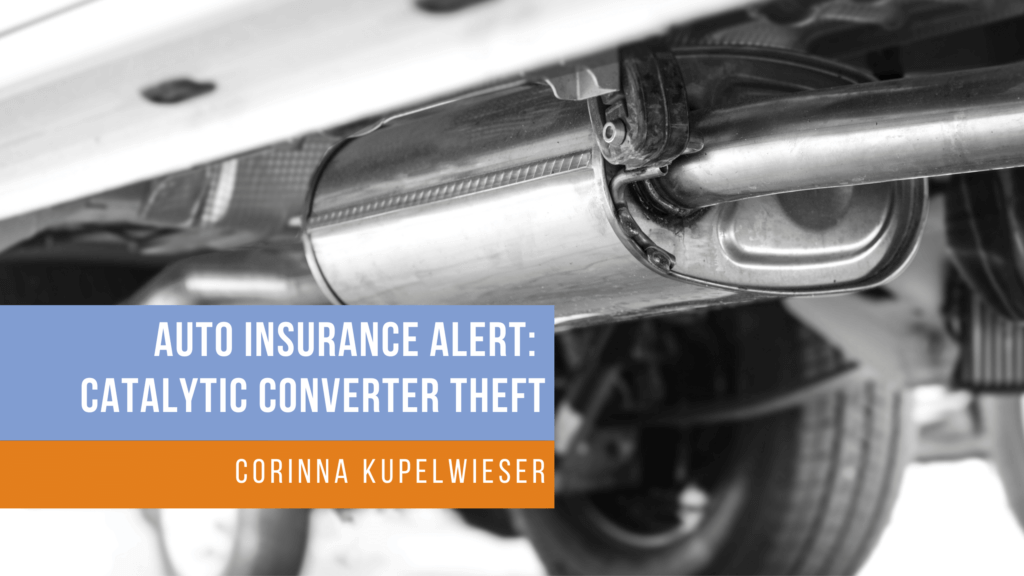Propel provides innovative insurance solutions to thousands of companies across the country. We make it our business to know your world inside and out.
Claims & Risk Management, Transportation
Auto Insurance Alert: Catalytic Converter Theft
Catalytic converter thefts surged during 2020. The National Insurance Crime Bureau says that an average of 1,203 catalytic converter thefts occurred each month in 2020, compared to only 282 each month in 2019 and 108 thefts each month in 2018. The number of thefts continues to grow. In fact, 2,347 catalytic converter thefts occurred in December – nearly double the 2020 annual monthly average.
Economic problems may have contributed to the massive surge, along with a recent increase in the value of metals found in catalytic converters. Regardless of the reason, the takeaway is clear: Thieves are eyeing your catalytic converter. Companies with fleets have a heightened risk.
Why Are Catalytic Converters Needed?
Vehicles produce exhaust gasses, and the catalytic converter uses chemical reactions to turn these gases into less harmful substances. Vehicles may still run without catalytic converters but doing so means that harmful exhaust gasses are being emitted. As a result, vehicles without catalytic converters may not be able to pass an emissions test.
What Are the Signs of a Stolen Catalytic Converter?
In addition to a failed emissions test, there are other signs that could indicate a missing catalytic converter. The vehicle’s “check engine” light may come on, and the vehicle may be running rougher. You may notice that the exhaust is darker than usual and that you’re going through gas faster.
If you suspect that your catalytic converter has been stolen, you can take your vehicle to a mechanic to have this confirmed. You may also be able to look under the vehicle and see where it was cut away.
How Can You Prevent Catalytic Converter Theft?
Thieves target catalytic converters for two reasons. First, they are easy to access. Second, they contain valuable metals and can be sold for a quick profit. To prevent theft, try to make your catalytic converter as difficult to access as possible.
- Choose parking spots carefully. You should park your personal vehicle in a garage if at all possible. Park fleets in secure parking areas. If vehicles are parked outside, make sure the area is secure and well lit. Consider installing motion detector lights.
- Protect your catalytic converters. A thief doesn’t need to be able to steal your vehicle to steal the catalytic convertor. Make the catalytic converter as difficult to access as possible. High clearance vehicles are likely to be targets, so be especially careful about where you park them. Install catalytic converter anti-theft devices and alarms. Also consider etching the VIN onto the catalytic converter.
- Train your team. If you have a commercial fleet, educate your drivers about this risk and provide guidelines for safe parking.
What If Your Catalytic Converter Is Stolen?
Catalytic converter theft is financially frustrating and inconvenient as you won’t be able to use the vehicle while it’s being repaired. This is especially true when fleets are hit and multiple vehicles are affected.
Depending on your personal or commercial auto insurance policy, catalytic converter theft may be covered. However, the cost may be close to the amount of the policy deductible, so many victims pay for the catalytic converter replacement cost out of pocket rather than filing a claim.
As with many exposures, prevention is the best policy.

Corinna Kupelwieser
Corinna designs data-driven safety programs to reduce workplace risk and injuries. She is an award-winning and sought after speaker on the topic of workplace safety and Workers’ Comp loss control.
More about Corinna...


